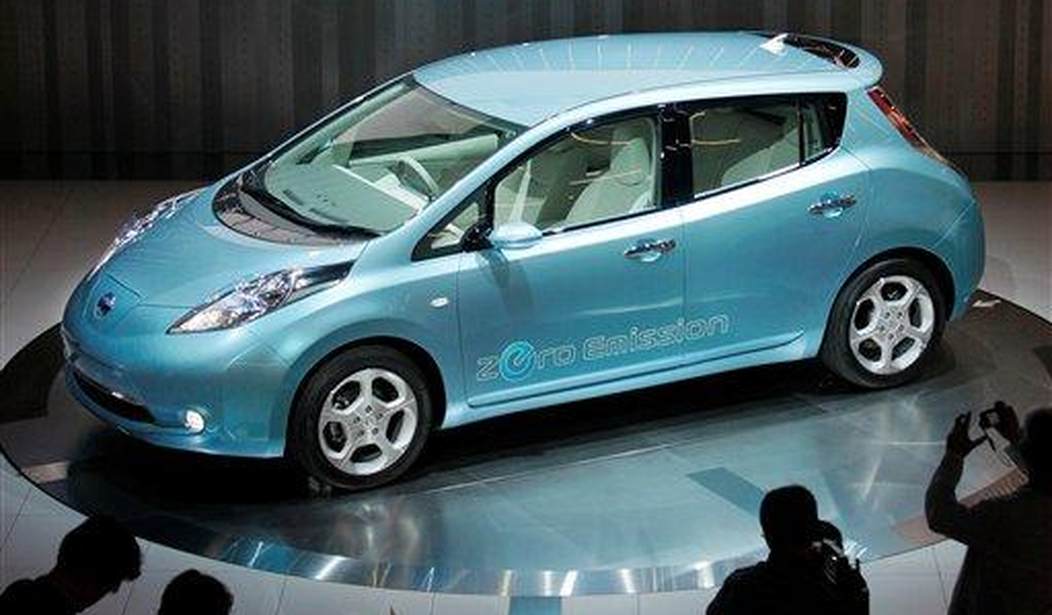As the Senate gears up to adjourn for August (the House left last week) and head to the beach, some lawmakers are making a last-minute push for policies that would envelop America in a sea of red ink. On July 29, Sens. John Barrasso (R-Wyo.), Shelley Moore Capito (R-W. Va.), Tom Carper (D-Del.), and Ben Cardin (D-Md.) introduced a legislative smorgasbord of failed transportation ideas and costly “renewable” pipe dreams. In a bizarre about-face, Barrasso has gone from leading the crusade against electric vehicle (EV) tax credits to spearheading EV charging station subsidies. Instead of picking their poison, lawmakers such as Barrasso should oppose all EV subsidization and protect taxpayers from a tidal wave of debt.
America’s Transportation Infrastructure Act of 2019 would green-light $287 billion to be transferred from the Highway Trust Fund over five years to finance road and bridge improvements. Of this enormous sum, $3 billion is set aside for “new funding distributed to states based on their current formula share to support projects that would lower highway-related carbon emissions.” A further $1 billion is slated for “states and localities to build hydrogen, natural gas, and electric vehicle fueling infrastructure along designated highway corridors, which lack such infrastructure.”
While the funding plans sound equivocal, it’s all but certain that states and localities will use that $1 billion to focus on EV infrastructure. Local governments and contractors have plenty of experience accommodating EV charging stations, while, say, hydrogen fueling infrastructure is more of an unknown entity. EVs and associated infrastructure have been on the market for years, yet this “exciting” technology has straddled federal, state, and local taxpayers with expensive cars that offer little environmental benefit.
Since 2010, federal taxpayers have subsidized the purchase of every EV across the country for up to $7,500 per vehicle. This policy primarily benefits wealthy Americans purchasing vehicles that are at a minimum 15 percent more expensive than comparable conventional cars. In a February 2018 report, Pacific Research Institute senior fellow Dr. Wayne Winegarden found that “79 percent of electric vehicle plug-in tax credits were claimed by households with adjusted gross incomes of greater than $100,000 per year.”
Recommended
Now, this credit is finally phasing out; the maximum obtainable credit from Uncle Sam is currently $1,875 and will zero out at the end of 2019. But, taxpayers shouldn’t be fooled; dozens of states are happy to roll out the welcome-wagon for wealthy buyers of new “green” vehicles. For example, Connecticut and Colorado offer $2,000 and $5,000 respectively for the purchase of a new EV. California, home to roughly half of all EV sales in the U.S., offers hundreds of millions of dollars in grant money for “various electric vehicle charger incentive projects” throughout the state. Then there’s the Department of Energy’s Loan Programs Office, which boasts billions of dollars in available loan guarantees for EV charging infrastructure. To “green” groups and like-minded lawmakers and bureaucrats, there can never be too much federal/state/local funding (taxpayer money) and support for EV projects.
Maybe, just maybe, EV zealots maintain, all this taxpayer spending and regressive redistribution are worth it for the birds and trees. But contra the claims of many environmentalists, EVs merely shift carbon emissions around, rather than reduce them. According to a 2017 study by Tsinghua University (Beijing) researchers, “CO2 emissions from the production of an EV range from 14.6 to 14.7 t, 59% to 60% higher than the level of an ICEV, 9.2 t [conventional vehicle].” Battery disposal also poses environmental problems; substances such as lithium, nickel, and cadmium can seep into the water supply and cause landfill fires (in turn releasing more carcinogens into the environment). EVs’ benefits are more psychological than environmental, hiding pollution from the motorist and shifting it to production centers and dumps.
Instead of contributing to this problem and plunging America deeper into debt, lawmakers should steer clear of EV and “renewable” subsidies. America’s infrastructure can be repaired without throwing needless, regressive green subsidies into the mix. Members of Congress should buy themselves some peace of mind at the beach, instead of worrying about wiping out taxpayers and consumers in a tidal wave of red ink.

























Join the conversation as a VIP Member